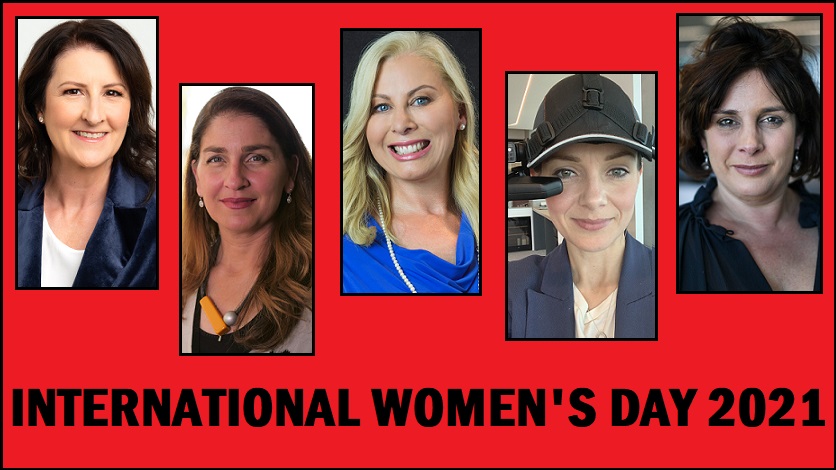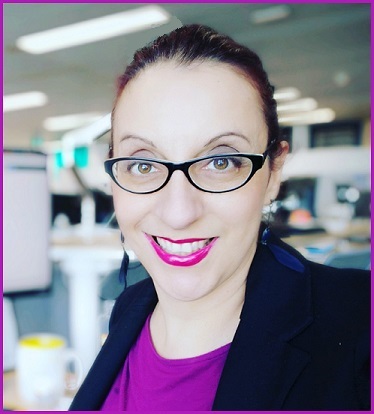Next Monday, 8 March, we celebrate International Women’s Day.
Information Age speaks to five female founders across our innovation labs in Sydney and Melbourne about the hurdles they’ve overcome, the best business advice they’ve been given, and the dumbest thing someone has said to them (you really have to read this to believe it).
The women are:
Carli Johnston, co-founder of Virtual Method – based at Harbour City Labs in Sydney
Virtual Method is an AR/VR specialist production agency.
Helen Souris, CEO of Cardihab – based at River City Labs in Brisbane
Cardihab is a digital health company that helps patients reach optimal health when at risk of, or living with, heart disease.
Kate Abrahams, Mantle – based at Harbour City Labs in Sydney
Mantle Corporate Affairs Technology is developing an augmented AI platform to reinvent organisational communications.
Trish Mackie-Smith, Inndox – based at River City Labs in Brisbane
Inndox is a digital property logbook that passes from one owner to the next.
Tanya Hyams-Young, CPO / COO Sourse – based at Harbour City Labs in Sydney
Sourse is an AI platform for media, telecoms and the subscription economy.
What do you love about being a female in the tech/innovation space?
Carli: As a woman in emerging technology, I love being part of the local and international community, as well as seeing women sincerely support, celebrate and encourage each other to succeed. I feel proud to forge a path for myself and support other women in this space by running the not-for-profit Women in ARVR Community.
But I don’t love how hard we have to fight to be heard, how much the concept of women in technology has been used and abused for personal gain or corporate window-dressing, and how the perspectives and benefits that women-led storytelling brings to the table are so rarely recognised as a point-of-difference.
Helen: I don’t think about my gender either as a positive or a negative in anything in life. I just get on with things. This might not be a common perspective, but I hope it’s one that prevails especially for the next generation of entrepreneurs.
Kate: I’m loving solving a deep-rooted communications problem that I’ve spent much of my career working around. Up to now, most of the investment into this area has comes from an IT engineering perspective, so what I’m enjoying is my understanding of the nuances and bringing a whole different perspective to the solution.
Trish: I love the fact that today being a female in the technology startup space brings many advantages and opportunities that were not around a few years ago. The ecosystem is far more inclusive now and this emboldens women to be more courageous and ambitious with their innovations.
Tanya: The thing that I love the most is that I can be unapologetically myself – because there are so few women working in tech and innovation I don’t feel the need to conform to existing gender stereotypes.
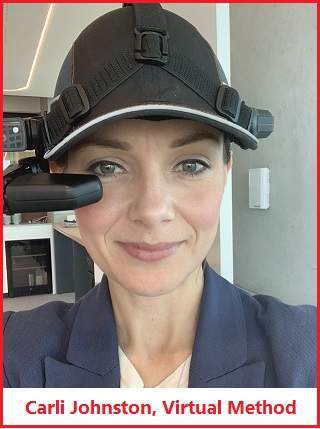
What are you most proud of in your business?
Carli: I am proud of what a diverse business we are, in all the areas of immersive technology we work-in. From Industrial 4.0 to VR Training to extremely creative brand storytelling for B2C, we have developed a huge amount of unique intellectual property and real experience that has set us up for a lot of growth this year, and in the years ahead. There are too many entities faking it till they make it in our industry, and we are proud to start from a point of integrity with new customers, never promising something we can’t do, try to learn on the fly and will ultimately under-deliver.
Helen: My wonderful team and the impact we are making on people’s lives. That is the lives of clinicians that help people through some of the most difficult moments in life, the patients who embrace the opportunity to participate in new models of care, and the outcomes and stories we hear that make us thankful and proud to be part of their recovery journey.
Kate: I’m enjoying making people sit up and think differently. We’re getting traction because our focus is on a simple solution to a big problem. It is a big thing to take an idea and get it off the drawing board.
Trish: I am very proud of inndox being the most awarded ‘proptech’ business in Australia. To achieve full acceptance and endorsement from industry after being a mere concept just three years ago, is pretty epic.
Tanya: SourseAI is a business that brought together senior executives with combined practical industry experience and highly accomplished, PHD-qualified, researchers and engineers to practically apply Machine Learning and AI for key industries - Telco, Entertainment, Utilities and subscription business. I’m proud of the fact we’ve created a culture of peers – there’s a lot of mutual respect, a lot of flexibility, heaps of communication and not a huge amount of ego in our business.
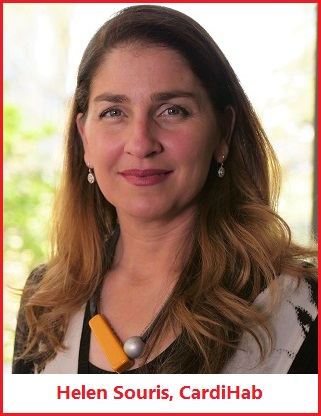
How does being in the Labs help you and your business?
Carli: Operating out of HCL in Sydney has been great for us in a few ways. From a workspace perspective, it overlooks Sydney Harbour and has a vista to the mountains, and is easy for our clients to find and recognise. The facilities are immaculate, the WiFi speeds are incredibly fast up and down the pipe, and the modularity allows you to scale as the needs arise. The people at HCL (and the adjoining ACS) have a genuine care for how you are progressing, in both your business and personally as well. As a mother of a 21-week-old (second-time round) I’ve had him in the office with a nanny a few times, which has allowed me to transition-back into my role seamlessly. And everyone at HCL has been incredibly supportive of that.
Helen: Being in the labs has provided our team with a rich environment to meet like-minded entrepreneurs, opportunities to collaborate and learn and access to experts and advisers to help our business grow.
Kate: Tapping into the extraordinary energy and knowledge that exists in Harbour City Labs has really helped me crack the problem. The support of ACS and the labs team is superb.
Trish: Basing our team at Brisbane's ‘tech hub’, River City Labs, provides instant credibility to our customers, partners and investors that we are a serious technology business. Our team benefits from all the great resources that only a corporate office can provide in a nurturing, vibrant and co-operative environment. I am very grateful for the exceptional business support, mentorship, education, networking and pitching events. These valuable ‘perks’ have contributed to helping us refine our pitches and business model and also opened doors to potential customers, partners and investors that may otherwise have been closed.
Tanya: The Labs have created a physical working environment that’s really valued by our engineers and data scientists. Having entire floors of highly focused engineers and data scientists that all have a mutual appreciation for some of the environmental factors that really matter to them is really important: noise levels, meeting etiquette, phone etiquette, technology that works all the time and the frictionless introduction of new technologies.
And for sales and management, the facilities are outstanding: we’re centrally located, have flexibility with meeting rooms, we’ve got security. We are privileged to be in a position to bring clients, partners and investors to one of Sydney's most modern buildings with panoramic views of our beautiful harbour and foreshore. All this adds up to an impressive starting point for scale up AI companies that want the right working environment, and to project a brand that is serious about their success and scale.
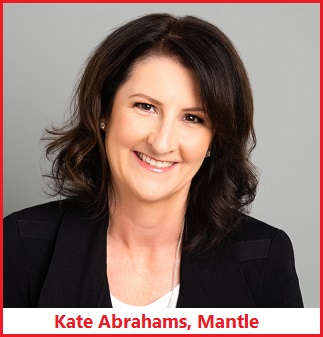
Were you encouraged from a young age that you could be “whatever you wanted to be”?
Carli: To be honest, I grew up in a conservative family on a rural working property in the Riverina. While I was encouraged to study, the strongly implied expectation was that I was to take my place as a third generation farmer, and fulfil my duties and greatest destiny as a farmer's wife.
I had a burning desire to create + build a life that excited me, which took my far away from where I started, to Sydney, and away from the ‘stay in your lane’ mentality of that world. When I was looking to transition out of Fashion Design/Styling and into technology, my father told me that I was not smart enough to do anything in technology, and that I should re-evaluate. Probably out of a fear of failure which, for some reason, has never dominated my own life-decisions.
Helen: Absolutely. I have always felt encouraged to be whatever I wanted to be and I have never felt constrained. Possibly more importantly, I have never allowed myself to be constrained when following my dreams.
Kate: I spent my childhood trying to keep up with my two older brothers. I was determined to do anything they did, better and faster.
Trish: Unfortunately, not much encouragement came from my parents. I was inspired by others to find inner strength to persist and strive for more. My journey would have been so much easier had I received encouragement earlier in life, and that is why I am committed to being a good role model for my own children – so they can intrinsically know that they really can be whatever they want to be.
Tanya: I remember that my Grandpa always said to me ‘It’s more important to choose the problems you want to solve than to choose a job you want to do.’ He was determined to become part of the RAF (it was wartime and so peace and stability were front of his mind) and he became a member of the 617 Squadron (the Dambusters).
He set a pretty incredible example of choosing the problems he wanted to solve and solving them, and I think that taught me two really important lessons: firstly, how important it is to set an example to others, and secondly, that the things you want to solve always change so you need to keep changing too.
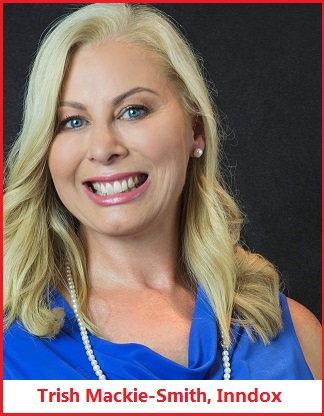
Who inspired or continues to inspire you?
Carli: I’m inspired by so many, and as a female in emerging tech, I often think of the women who paved the way for me to be here, and the women who continue to break glass ceilings and build our industry.
I’m also constantly inspired by my co-founder + CEO, David Francis, who gave up his entire career to jump into AR/VR 10 years ago (pretty sure I had an analogue Nokia at that time) – and blazed a path for so many in our industry. David’s drive, energy and genuine excitement for every emerging device/gadget/software platform-around astounds me to no end even until today, and I’m able to lean-on and count on him to support my own journey as well as the Women in ARVR community, whenever I need it.
Helen: The list is very long. I draw inspiration from people who are passionate and committed to doing great and positive things in whatever they do.
Kate: Sacha Baron Cohen, Angela Merkel, Lewis Hamilton, Professor Scott Galloway and Marina Abramovic. Creative people with big ideas and a knack for speaking truth to power.
Trish: I have been inspired by Rosa Parks, Oprah Winfrey, Ruth Bader Ginsburg, JK Rowling, Hillary Clinton, Michelle Obama and most recently, Jacinda Ardern. They all inspire me to progress with purpose, integrity and courage.
Tanya: Working in tech and innovation I interact daily with people that are much smarter than me and I’m constantly inspired by the team surrounding me. I’m hugely inspired by authenticity, too, so I’m really inspired by leaders that show their humanity especially when their leading disruption or change. (And I’m a New Zealander so I’m a big Jacinda fan.)
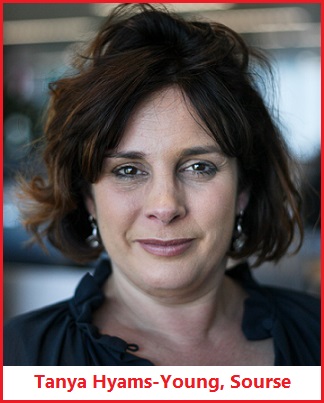
What major hurdles have you overcome to be where you are today?
Carli: There have been many hurdles. I came from a 2D design background in fashion, and had limited understanding of technology, let alone emerging technology, so I truly had a baptism of fire in AR/VR. Early on, I felt like the silliest goose most of the time! It took time, application, drive and self-belief that I could be and do whatever I wanted. There really is no fast-tracking the learning curve. Instead, applying yourself, surrounding yourself will do-ers (not ‘gonna-s’), good people who know what they are talking about, and people who will altruistically offer the perspective and kindness that you will need to get up again if (when) you get knocked down.
Helen: One of the biggest challenges is achieving work life balance. There is no certain recipe, but you can and must choose how and when to be present for both.
Kate: Making the mindset switch to being a founder felt like a big risk at the beginning. Now I see it as liberating and wished I’d done it years ago.
Trish: Some major hurdles included converting the initial idea into a prototype to validate the concept; finding good Australian-based tech developers to build the MVP (minimum viable product); identifying correct market-entry to acquire our first customers; recruiting and managing a team during COVID-19; refining product-market fit and pivoting; raising sufficient funds to support growth; setting up successful sales processes, implementing effective marketing campaigns and the development of an API enabling software integration with a national company.
Tanya: I don’t really fit into a box and I don’t think many people naturally do, so I’ve had an ongoing struggle to fit into roles and boxes when that’s been required of me – it’s certainly not led to my best ideas or happiest times! I also have a strong sense of setting the right example to people (in what I do and how I do it) which means that being kind, helpful and generous are the values that I hold onto, but of course not everyone shares that perspective. So, I’ve learnt that I like working with people that don’t try to box me and that value trust and integrity.
What is the best business advice you’ve ever been given?
Carli: The earliest best advice came from a poem I studied in high school, at a time when I wrestled with my career choices - Robert Frost’s ‘The Road Not Taken’ – “I took the one less traveled, and that has been all the difference”.
Also, when I started out in AR/VR, “remove those limiting beliefs, they don’t exist” (I wish I could remember who said that to me.)
And finally, I love the ‘Man in the Arena’ from Theodore Roosevelt. Seems to sum-up what it feels like daily, working at the bleeding edge of technology.
The two best pieces of business advice I've been given is that value comes in many forms, never sacrifice your own; and work smarter not harder.
Helen: Be curious. Be authentic. Have fun.
Kate: Listen.
Trish: Maintain a laser-like focus with respect to the product offering and the target market. In other words, don’t get distracted by those enticing ideas and opportunities that do not support your core business as this only causes confusion and impedes execution.
Tanya: Choose the person, not the job. I think the same applies to partners and clients. We spend lots of time and energy at work, so we should value how we go about it and not just the outcome. Giving consideration of the people you’re working with, the client you’re selling to or the partner that’s going to enable you means that there’s much more commitment to the outcome than if you’d made the choice on numbers alone.
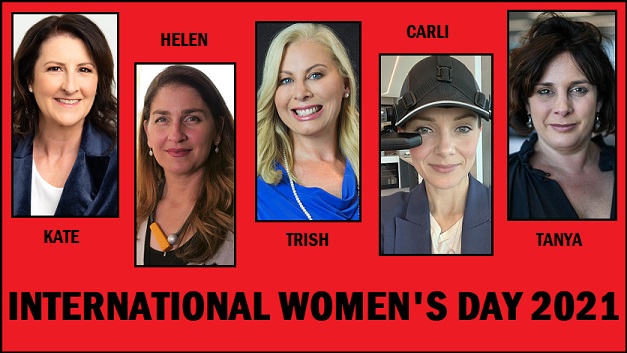
What is the most stupid thing anyone has ever said to you?
Carli: There have been a few stupid things, but I’ll share three: “I bet that being a girl opens all the men’s wallets” – casually said to me at a business event; “What do we do about the women issue?’’ – speaking about diversity in our industry at a conference; and upon arriving into a C-Suite boardroom to discuss a campaign I was taking the lead on, “Hi, did you want to get a round of coffees?”.
It is important to address each comment thoughtfully, and not be a spectator in our efforts to drive change, no matter who you are.
Helen: A female colleague once asked me after returning to work from maternity leave “So… now that you have had your first child, are you still interested in a career and do you still have ambition?"
Kate: Early in my career one of my bosses didn't seem to realise that women had the right to come back to work after maternity leave. He hired someone else into my role and then offered me the opportunity to come back as the 'secretary’ for my ‘replacement’. You can imagine my response!
Trish: "Pitch to a panel of venture capitalists and raise $500k!” This was the expectation at the end of an accelerator program. I was naive to think that we could generate serious VC interest at such an early stage. We wasted a lot of time and energy pitching to VCs when we should have spent more time engaging with customers and raising small amounts from angel investors.
Tanya: When I was at high school, my math teacher was a smart (and terrifying) mathematician. I remember putting up my hand up to ask a question (which was braver than most of the girls and boys in the class) and instead of acknowledging that I had a question he said, “Does anyone else have a question? Girls really don’t need to understand maths.” It was the 1990s!




